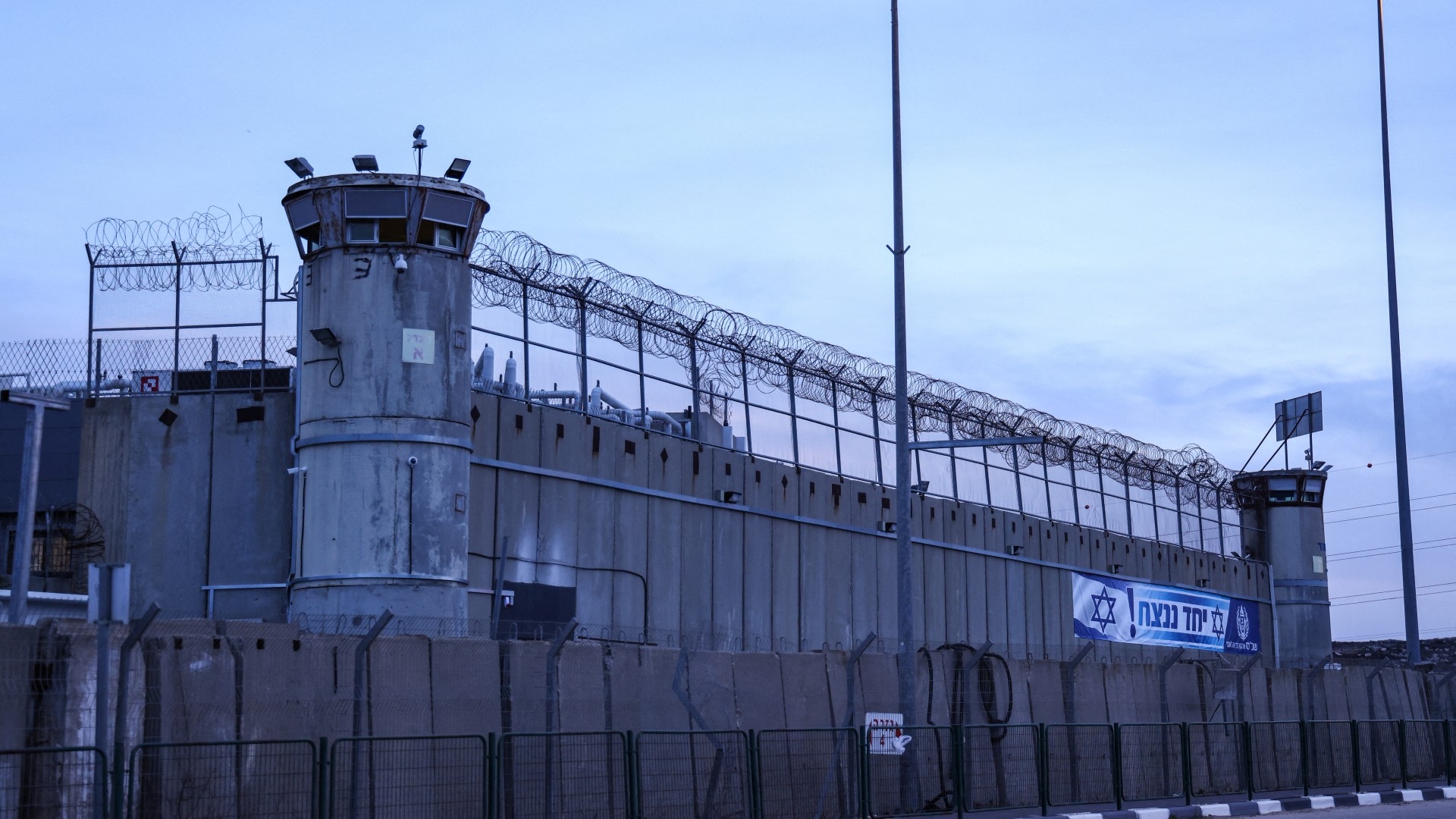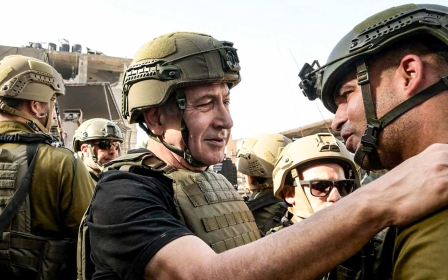Israel-Palestine war: Bruises found on bodies of Palestinians who died in Israeli detention

At least two of the six Palestinian detainees who have died in Israeli custody since the ongoing war began in October were found with bruises on their bodies, Haaretz said in a report on Wednesday.
Four of the six died in Israeli prisons, while two died in military detention facilities.
Two were found with bruises, while evidence suggests four died from violence preceding their death, or of medical neglect.
Abdul-Rahman Maree, 33, died in Megiddo Prison on 13 November. An autopsy 10 days after his death showed signs of trauma on his chest, and that his ribs and sternum were broken.
Signs of external injuries were also seen on his head, neck, back, left arm and thigh.
Stay informed with MEE's newsletters
Sign up to get the latest alerts, insights and analysis, starting with Turkey Unpacked
According to the autopsy, seen by Haaretz, Maree was a healthy person with no underlying illnesses, so his death can be attributed to the violence he suffered. An official cause of death has not been declared.
According to an eyewitness, prison guards were provoking Maree by cursing his recently deceased father. When he yelled back, around 10 to 15 prison guards attacked him, beating him severely for five minutes and focusing their blows on his head.
The same witness said that since the war began two months ago, Israeli forces from various units enter Megiddo Prison on Tuesdays and Sundays each week and handcuff prisoners' hands behind their backs and beat them.
Thaer Abu Assab, 38, died in Ktzi'ot Prison on 18 November.
His family demanded an autopsy and an investigation into the cause of his death, claiming that it was not natural.
Follow Middle East Eye's live coverage for the latest on the Israel-Palestine war
According to the Haaretz report, Israeli authorities said an autopsy had already been carried out two days after his death, without his family being notified. They added that a verdict had not been reached on the cause of death.
Omar al-Atshan, a Palestinian teenager freed last week in prisoner exchanges during the week-long truce, said Abu Assab was beaten to death in custody.
"He was subjected to too much beating. We cried for help, but doctors arrived after an hour and a half, after he was already dead from torture," Atshan told Al Jazeera on his release.
"He was tortured because of a question; he asked the warden whether there was a truce. Then he got beaten to death."
'Assassination'
Palestinian prisoner Omar Hamzeh Daraghmeh, 58, died in custody on 23 October. He was detained just two days after the war broke out.
Daraghmeh's lawyer told Haaretz that a hearing took place on the day of his death, in which the detainee said he felt okay but the situation in the prison was "difficult" due to "violent" Israeli officers.
Hamas described Daraghmeh's death as an "assassination".
Arafat Hamdan, 25, died a day later in circumstances that remain unclear. His father told Haaretz that Hamdan suffered from diabetes, but was not given medicine as regularly as he required.
The two other detainees to die were Raja Samour, 46, and Majed Zakol, 32.
'My prison clothes were white but then turned red from blood stains'
– Osama Marmash, released teenage detainee
Both were Palestinian workers from Gaza who were detained in the occupied West Bank after Israel cancelled the work permits of all those from Gaza, following the outbreak of war.
Most workers were kept in detention facilities, before being transferred back to Gaza in November.
Testimonies obtained by Haaretz suggest Samour, who also suffered from diabetes, died after not receiving treatment he had requested while in detention.
The cause of death of Zakol, who was reportedly a cancer patient, remains unclear. Both of their bodies are still held by Israeli authorities.
Footage of abuse
MEE reported in November that video footage shared on far-right Israeli Telegram channels appeared to show Palestinian workers in the occupied West Bank being abused by Israeli soldiers.
In one harrowing video, blindfolded Palestinian men with cable ties around their hands are seen being assaulted by heavily armed troops. The men - some of whom have been stripped entirely naked - can be heard screaming while lying on the floor.

Soldiers drag them across the ground, while one Israeli soldier steps on a detainee's head. His colleagues are heard laughing in the background.
The Israeli military told Middle East Eye: "The conduct of the force that emerges from the footage is deplorable and does not comply with the army's orders."
Palestinian children freed from Israeli jails in recent days as part of a prisoner exchange deal between Hamas and Israel also said they were subjected to abuse in captivity.
"My prison clothes were white but then turned red from blood stains," released teenager Osama Marmash said, adding that freed detainees were mistreated on their journey back to the West Bank.
The death toll of Palestinians killed in Gaza since Israel's bombardment of the enclave began nine weeks ago exceeded 16,000 on Tuesday. Most of the dead are women and children. Thousands more are missing under the rubble.
The Israeli assault came following Hamas's attack on southern Israeli communities on 7 October, which killed around 1,200 Israelis, most of whom were civilians.
Middle East Eye delivers independent and unrivalled coverage and analysis of the Middle East, North Africa and beyond. To learn more about republishing this content and the associated fees, please fill out this form. More about MEE can be found here.




